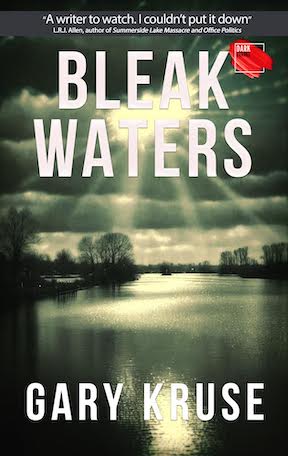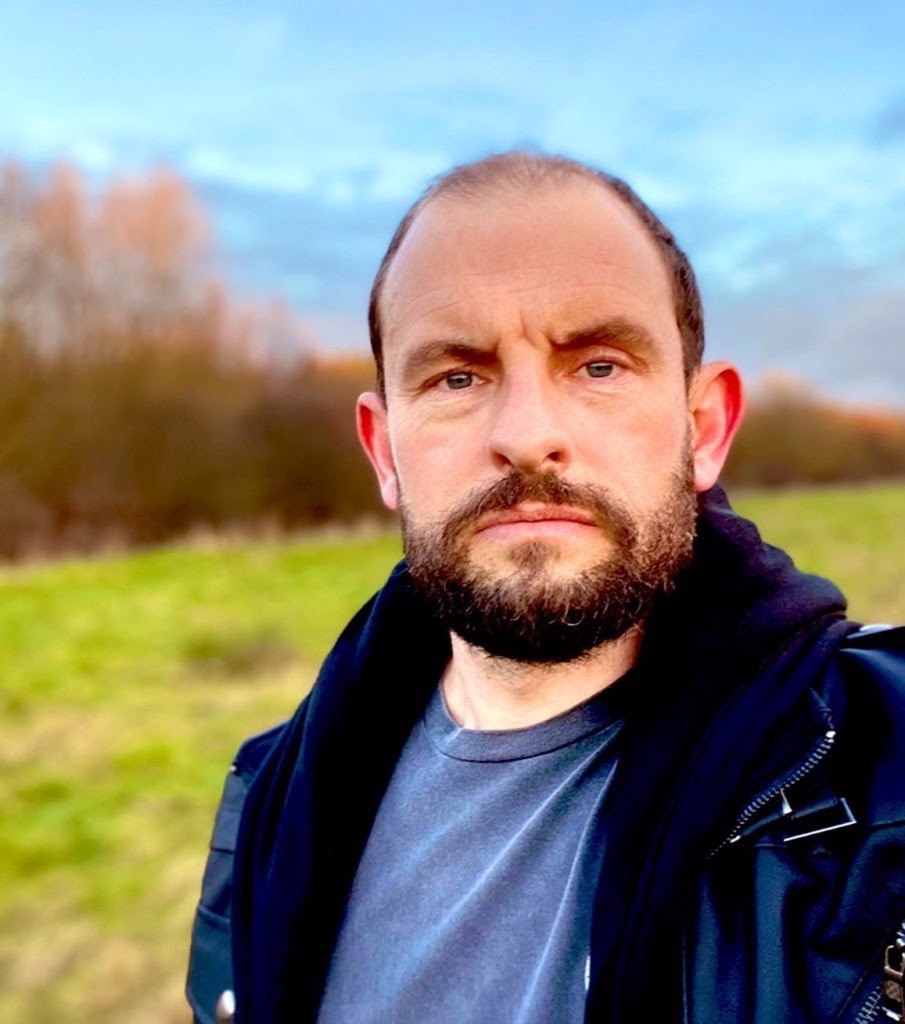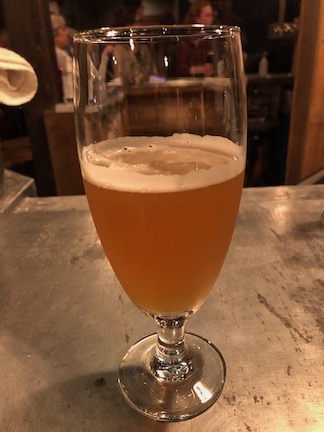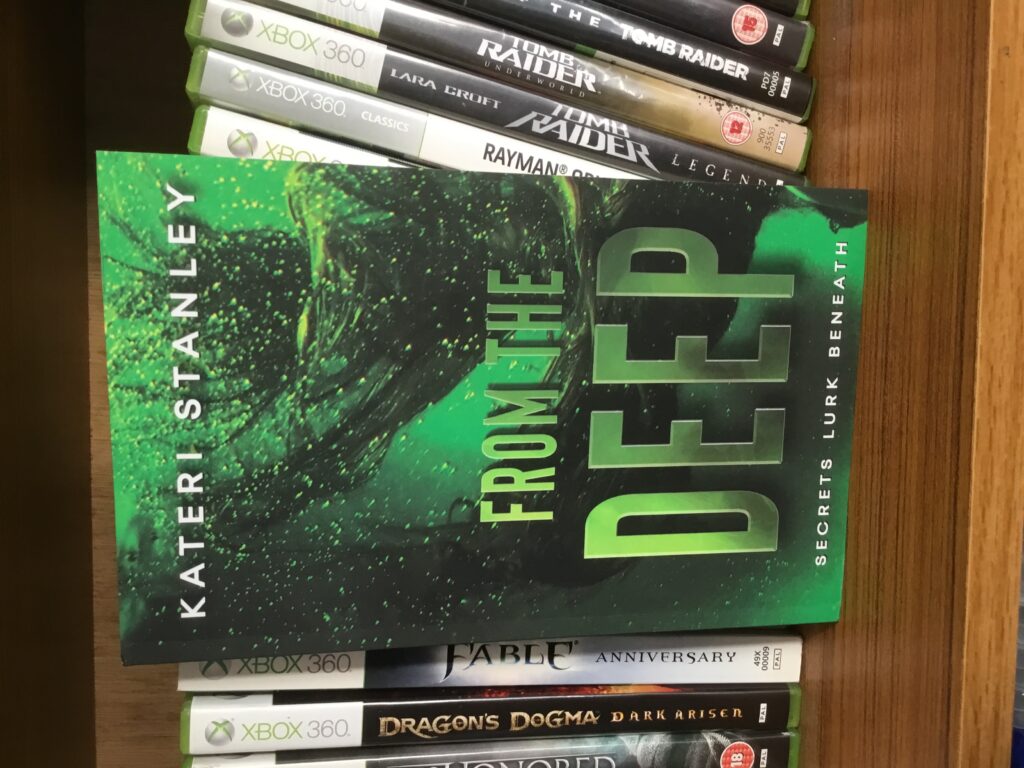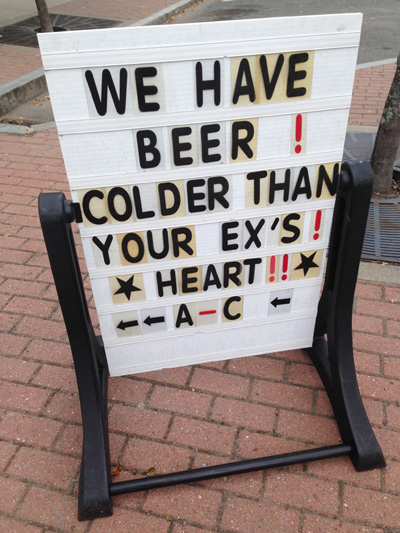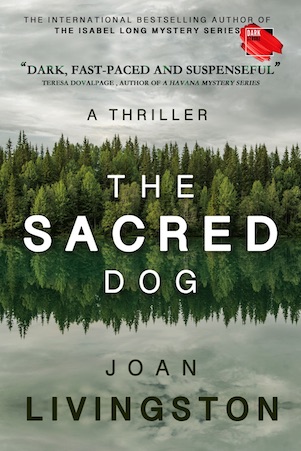In this next installment of the Character Traits series, Lily West, a creation of author Gary Kruse, is featured. Gary describes himself as a writer of thriller and horror fiction about people on the edge of society struggling to discover themselves. That includes Lily West. Now, I will let Gary take over on this post.
Lily West is the main character in my new supernatural mystery, Bleak Waters. She’s in her early 20’s and when we meet her in the book, she’s standing on the water’s edge of Hickling Broad in the middle of winter, struggling to process the suicide of her father the previous summer.
As a child, Lily used to get severe migraines which bought on ghostly visions, but these faded after a vicious intervention from her mother, Hetty.
She lives and works in the Whippet, a fictional pub in Hickling village, and the villagers are like an extended family to her, and some of them stepped in to help after her father’s death. It’s a close-knit, rural community.
But like all villages, it has its secrets, and one secret in particular will shatter everything Lily believes.
How did you come up with the character and his/her name?
Lily was one of the first characters I came up with for the book. I was on holiday in Hickling with my sons in spring 2019, and as with Badlands, the more time I spent in the area, the more my writer’s brain started whirring and I started getting ideas for a new story.
In the first serious brain-storming session, I decided that the MC would be a barmaid in the village pub as she would be able to naturally interact with all the characters and also face conflict with them when she started asking questions about the central mystery.
Initially, I struggled to come up with her name. I brainstormed a list of about thirty names, and as I was making notes and developing the character, Lily was the name that stuck.
Tell us more about Bleak Waters.
It’s part ghost-story, part mystery, part crime novel. A stranger, Theo Sinclair, arrives in the village of Hickling in the dead of winter asking questions about the disappearance of a young woman called Claire Baldwin twenty-five years earlier. At first Lily doesn’t trust Theo and won’t help him. She’s already got enough on her plate dealing with the questions raised by her father’s suicide, questions that make her wonder how well she really knew her Dad.
Theo’s arrival also seems to stir Lily’s long-buried curse of seeing the dead as the night after his arrival, she experiences the first twinges of a migraine and senses a shadowy presence haunting her room.
Theo persists in asking Lily for help, and as Lily learns more about him and why he’s come to Hickling, gradually her reluctance breaks down. She starts to help him and as she and Theo dig deeper into Claire’s disappearance, the ghostly visions grow stronger, and Lily finds disturbing links between her father and Claire.
Already harbouring suspicions about her father after his suicide, she starts to realise that finding the truth may destroy everything she loves and holds dear, and force her to finally confront the ghosts that haunt her.
Was a real person your inspiration for this character?
No, Lily, like all of my characters, is a mix of different influences and inspirations, not one real person. When I look back at the first notes, as I say, the character came from a need to have someone who could act as a go-between for the stranger arriving in the village, and the villagers themselves.
The Whippet, the Pub in the book, was inspired by a real Pub in the village of Hickling called the Greyhound, and what struck me about the Greyhound was how it seemed to be a hub of village life so that naturally suggested making the main character someone who worked in the pub.
From there, Lily’s character evolved first through the notes and planning, then through the drafts. And naturally, the main character has to be the one who hurts the most, who suffers the most, and by the end of Bleak Waters, Lily has certainly done that.
Is your character likable or not?
According to the beta readers, yes! It’s interesting because when you read the reviews of my first book, Badlands, a lot of people felt that Willow was a tough character to like, but that characterisation came from her harsh back-story.
When we meet Lily, she’s not world weary in the way that Willow was. She’s haunted, and guilt-stricken yes, but she’s still living at home, in her cozy village with people she loves, and she’s got a big heart. She cares and in some ways she’s an emotional open book, whereas Willow is more guarded and more defensive. But none of that was deliberate for either character. It all evolved naturally from the respective story’s needs.
Extract from Bleak Waters
Lily threw her phone down on the bed. Eyes gritty, the need for sleep clouding her thoughts now, she stripped and slipped on a pair of thick woollen pyjamas. She cleaned her teeth, peed, washed her hands then slapped out the light. In the dark, she crossed to the bed, yawned, and stretched wide. As she lowered her arms, a sharp pain stabbed over her brow.
She winced, pressed her fingertips against the bone and rubbed the skin. The pain made her stomach squirm. It bought back memories of the migraines that had plagued her early adolescence.
Back then, the migraines had gotten so bad they left her speaking in tongues and seeing visions, seeing people that were not, no, could not be there. Still, she had been migraine free for almost ten years now. This was probably just tiredness. Lowering her fingers, she turned to draw back her bedclothes.
The pain flared. A shadow moved in the corner of her eye. Vague and blurry. Heading for the door behind her. Sucking a gasp, she spun to get a better look. Saw nothing but the door locked and latched.
The pain faded but didn’t vanish completely. She blinked in the dark but saw nothing now.
Skin crawling, but convincing herself she was overreacting, she turned back to the bed. As she reached for covers again, she sensed a movement in the dark behind her. And a sound. Like a footstep on the laminate floor.
She froze. The pain in her brow throbbed. A scent lingered in the air, faint, and ephemeral. It smelt like the ghost of a memory. It was the smell of sweat and sun-cream. Fists clenched tight, Lily turned and peered into the darkness behind her.
“Dad?” she whispered.
Her voice broke the silence. The pain disappeared and the feint scent vanished. Lily stood in the dark, heart trembling, breathing quickly, two questions consuming her thoughts.
Had she imagined that sense of movement, the footstep, the ghostly smell? Or were the migraines, and the visions that came with them, starting again?
Authors Bio
Gary Kruse is a writer of thriller and horror fiction about people on the edge of society struggling to find who they are, where they come from and where they’re going. He has won and been shortlisted for several short story competitions and his debut novel, Badlands is an Amazon bestseller.
Bleak Waters is his second novel.
Links
Bleak Waters: https://mybook.to/bleakwaters
Author Website: http://garykruse.co.uk/
Twitter: www.twitter.com/@garykruseauthor
Instagram: www.instagram.com/@gowerkrusewrites
Facebook: www.facebook.com/GaryKruseWriter
TikTok: https://www.tiktok.com/@garykruseauthor?_t=8dDyqMKxYvS&_r=1

